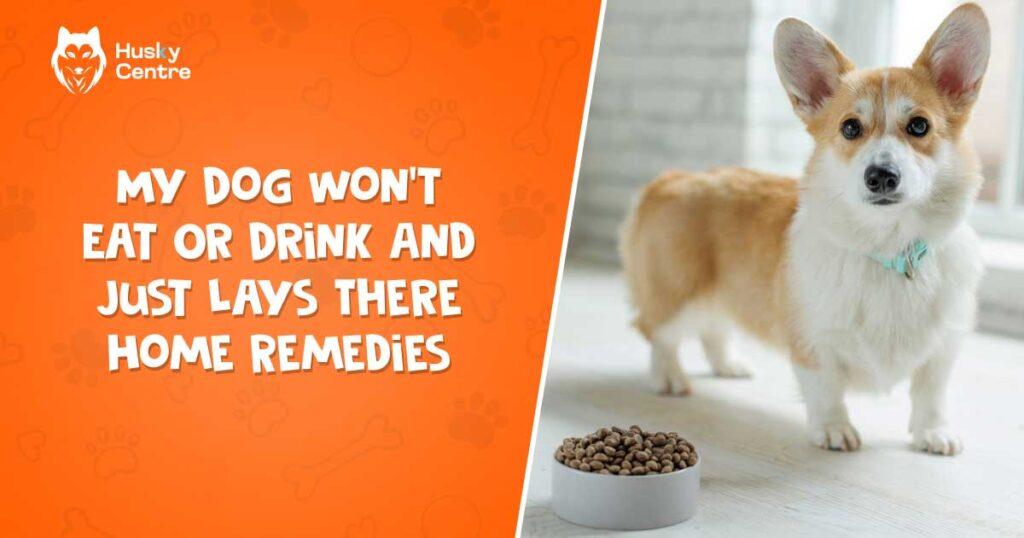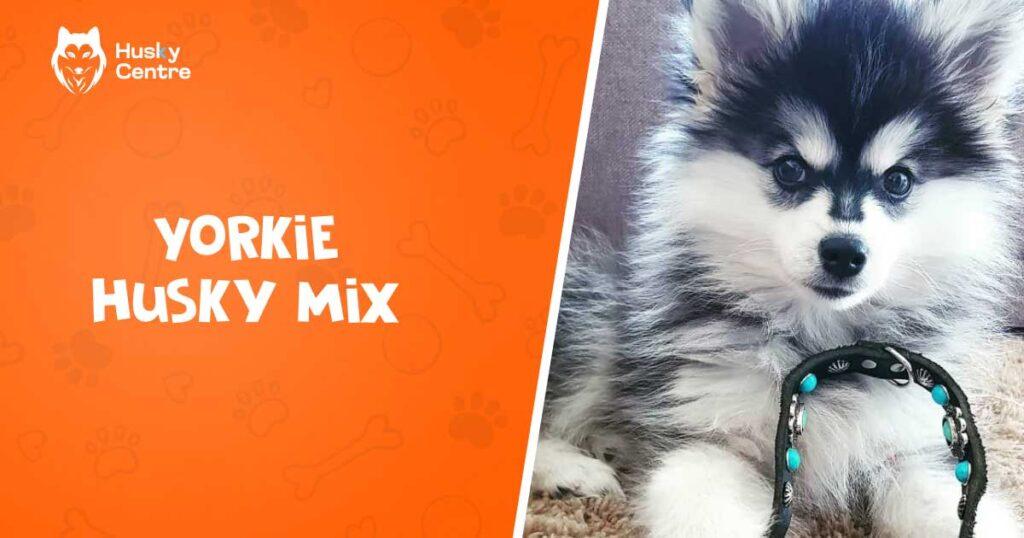Seeing your dog refuse food and water can be alarming. It leaves you worried and unsure of what to do next.
Dogs, like humans, can have off days. But when your dog won’t eat or drink and just lays there, it’s crucial to understand why and find ways to help. Many factors can cause this behavior, from minor issues to more serious health problems.
Before rushing to the vet, you might want to try some home remedies. These can sometimes address the issue and get your furry friend back to their playful self. In this blog post, we will explore simple and effective home remedies. These can help when your dog isn’t eating or drinking. Keep reading to learn more about how you can support your dog at home.
Encourage Hydration First
Is your dog refusing to eat or drink and just laying there? As a pet owner, this can be very concerning. Ensuring your dog stays hydrated is crucial. Here are some home remedies to help your dog stay hydrated and get back to their playful self.
Offer Fresh Water Frequently
One of the simplest dog hydration tips is to offer fresh water frequently. Dogs, like humans, prefer clean and fresh water.
Here are some ways to ensure your dog drinks enough water:
- Change the water multiple times a day to keep it fresh.
- Use a clean bowl to avoid any contaminants.
- Place water bowls in different locations around the house.
- Encourage your dog by gently guiding them to the water bowl.
Using a table can help track your dog’s water intake:
| Time | Water Offered (ml) | Water Consumed (ml) |
| Morning | 500 | 300 |
| Afternoon | 500 | 250 |
| Evening | 500 | 200 |
This table helps you monitor your dog’s hydration levels and ensure they are drinking enough water.
Try Adding A Splash Of Chicken Broth
If your dog won’t drink water, try adding a splash of chicken broth. The flavor can entice your dog to drink more.
Follow these steps:
- Choose a low-sodium chicken broth to avoid excessive salt intake.
- Mix a small amount of broth with water in your dog’s bowl.
- Offer this flavored water to your dog and observe their response.
Using chicken broth can make drinking water more appealing and help in keeping your dog hydrated. Be sure to:
- Check the ingredients for any harmful additives.
- Use broth in moderation to prevent any digestive issues.
These simple steps can make a big difference in helping your dog drink water.
Use An Ice Cube If Direct Drinking Is Difficult
If your dog struggles to drink water, using an ice cube can be a helpful solution. It can provide hydration in a fun and engaging way.
Here’s how to use ice cubes effectively:
- Place a few ice cubes in your dog’s water bowl.
- Encourage your dog to lick or play with the ice cubes.
- Observe your dog’s interest and ensure they consume the melting water.
Using ice cubes can be especially helpful in hot weather. Dogs often find the cold temperature refreshing. Additionally, ice cubes can be:
- A playful distraction for dogs who are reluctant to drink.
- A way to monitor your dog’s hydration in a non-invasive manner.
Ensure to supervise your dog to prevent any choking hazards.
Try A Pet Hydration Supplement Or Water Enhancer
If your dog still refuses to drink water, consider trying a pet hydration supplement or water enhancer. These products are designed to make water more appealing.
Here are some steps to use these products:
- Choose a reputable pet hydration supplement or water enhancer.
- Follow the dosage instructions on the product label.
- Mix the recommended amount with your dog’s water.
Pet hydration supplements can provide essential electrolytes and nutrients. This can be beneficial in keeping your dog hydrated and healthy.
Consider these tips:
- Consult your vet before introducing any new supplements.
- Monitor your dog’s reaction to the new water mixture.
- Adjust the dosage if necessary to ensure optimal hydration.
Using a water enhancer can be an effective solution for dogs who are picky drinkers. It can help in maintaining their hydration levels and overall well-being.
Natural Appetite Boosters
Is your dog refusing to eat or drink and just laying there? It can be concerning. Luckily, there are some natural appetite boosters that can help. These home remedies can encourage your dog to eat and regain energy.
Tempt With Small Amounts Of Warm, Soft Food
One effective way to get your dog eating again is to offer warm, soft food in small amounts. Warm food often has a stronger smell, which can be more enticing to dogs. Here are some tips:
- Warm up some canned dog food or homemade meals.
- Ensure the food is not too hot to avoid burns.
- Try foods like cooked sweet potatoes or mashed carrots.
Additionally, you can mix some chicken broth into their regular food. This adds flavor and moisture, making it more appealing. Avoid broths that contain onions or garlic, as these are harmful to dogs.
Creating a comfortable and quiet eating environment can also encourage your dog to eat. Stress and anxiety might be causing their lack of appetite. A calm setting can make a big difference.
Mix In Plain Yogurt Or Canned Pumpkin For Appeal
Incorporating plain yogurt or canned pumpkin into your dog’s diet can be a great way to enhance their appetite. Both are safe and nutritious for dogs, and they add a different texture and flavor to meals.
Plain yogurt provides probiotics, which can aid digestion. It is a healthy addition to your dog’s food. Simply mix a spoonful into their regular meals. Avoid flavored yogurts, as they often contain sugars or artificial sweeteners.
Canned pumpkin is another excellent option. It is rich in fiber and can help with digestive issues. Use pure, unsweetened canned pumpkin, not the pie filling. Add a tablespoon to your dog’s food and mix well.
| Food | Benefits |
| Plain yogurt | Probiotics, aids digestion |
| Canned pumpkin | Fiber, helps with digestion |
Offer Bland Foods Like Boiled Chicken And Rice
Sometimes, a bland diet is the best choice for a dog that won’t eat. Boiled chicken and rice is a classic combination that is gentle on the stomach and easy to digest.
To prepare:
- Boil chicken breast without any seasoning.
- Cook white rice until it is soft.
- Mix the chicken and rice in a 2:1 ratio (two parts rice, one part chicken).
Serve small portions and monitor your dog’s response. This meal is not only palatable but also provides necessary nutrients without upsetting the stomach.
Ensure the food is at room temperature before serving. Dogs may find cold food less appealing. This is an easy and effective home remedy for a dog not eating.
These natural ways to make a dog eat can be very helpful. They offer simple, nutritious options to entice your dog and improve their appetite. Remember, if your dog’s refusal to eat persists, consult a vet. These appetite enhancers for dogs are great, but professional advice is always the best route for your pet’s health.
When To Seek Veterinary Help
Seeing your dog refuse food and water while lying down all day can be very worrying. It’s important to know when to seek veterinary help. Here, we discuss the signs to look for and when to call a professional. Understanding these aspects can help you take timely action and ensure your pet’s well-being.
Check For Signs Of Illness Or Dehydration
When your dog won’t eat or drink, it’s crucial to check for signs of illness or dehydration. These symptoms can help you determine if your dog needs emergency help.
Signs of illness in dogs:
- Lethargy or fatigue
- Vomiting or diarrhea
- Coughing or sneezing
- Shaking or trembling
- Unusual behavior or aggression
Dehydration signs in dogs:
- Dry nose and gums
- Loss of skin elasticity (pinch test)
- Sunken eyes
- Panting excessively
- Dark or sticky saliva
To check for dehydration, gently pinch the skin at the back of your dog’s neck. If it doesn’t snap back quickly, your dog might be dehydrated. Also, check their gums. Healthy gums should be moist and pink.
Call The Vet If Symptoms Persist For More Than 24 Hours
If your dog’s symptoms persist for more than 24 hours, it’s time to call the vet. Prolonged refusal to eat or drink can lead to serious health issues. This is when to see a vet for a dog not eating.
Steps to take:
- Observe your dog closely for 24 hours.
- Note any changes in behavior or symptoms.
- Contact your vet and provide detailed information.
- Follow your vet’s advice and schedule a visit if necessary.
Important information to share with your vet:
- Duration of symptoms
- Any recent changes in diet or environment
- Other symptoms like vomiting or diarrhea
- Previous health issues or medications
Early intervention can prevent complications. If your dog shows signs of dehydration or illness, seeking emergency help for a dog not eating is crucial. A vet visit for a dog not eating can help diagnose the problem and provide the necessary treatment.
Avoid Force-feeding; Consult A Professional For Advice
Force-feeding your dog can lead to stress and potential injury. Instead, consult a professional for advice.
Why force-feeding is not recommended:
- It can cause aspiration pneumonia.
- It may increase your dog’s stress levels.
- It can lead to choking or injury.
What to do instead:
- Offer small amounts of water or ice cubes.
- Try feeding bland food like boiled chicken and rice.
- Use a syringe to give small amounts of water if recommended by your vet.
- Provide a calm and comfortable environment.
Consulting a professional ensures your dog gets the right care. They can provide tailored advice based on your dog’s condition. Remember, timely action can make a significant difference in your pet’s health.
Frequently Asked Questions
Why Won’t My Dog Eat Or Drink?
Your dog might be sick, stressed, or in pain. Check for any visible injuries. If the behavior continues, consult a vet.
What Home Remedies Can Help?
Offer bone broth or diluted chicken broth. These are enticing and hydrating. Add a bit of wet food to their diet.
When Should I Call The Vet?
If your dog hasn’t eaten or drunk for 24 hours, contact your vet immediately. Monitor for other symptoms.
Can Stress Cause My Dog To Stop Eating?
Yes, stress can affect your dog’s appetite. Changes in environment or routine can contribute. Try to maintain a calm environment.
Conclusion
Caring for a sick dog can be stressful. Try simple home remedies first. Ensure your dog stays hydrated. Offer bland foods like boiled chicken or rice. Monitor your pet closely. Seek veterinary help if there’s no improvement. Your dog’s health is important.
Quick action can prevent serious issues. Stay calm, and trust your instincts. Your furry friend will appreciate your care and attention.


Meet Jarred, the heart and soul behind HukyCentre. With a deep affection for furry friends, he pours his passion into every word he writes. His genuine love for dogs shines through in his engaging and informative content. As a dedicated dog enthusiast, Jarred’s goal is to share valuable insights and tips that resonate with fellow dog lovers. Join Jarred on the journey as he celebrates the joy and companionship that dogs bring into our lives.


